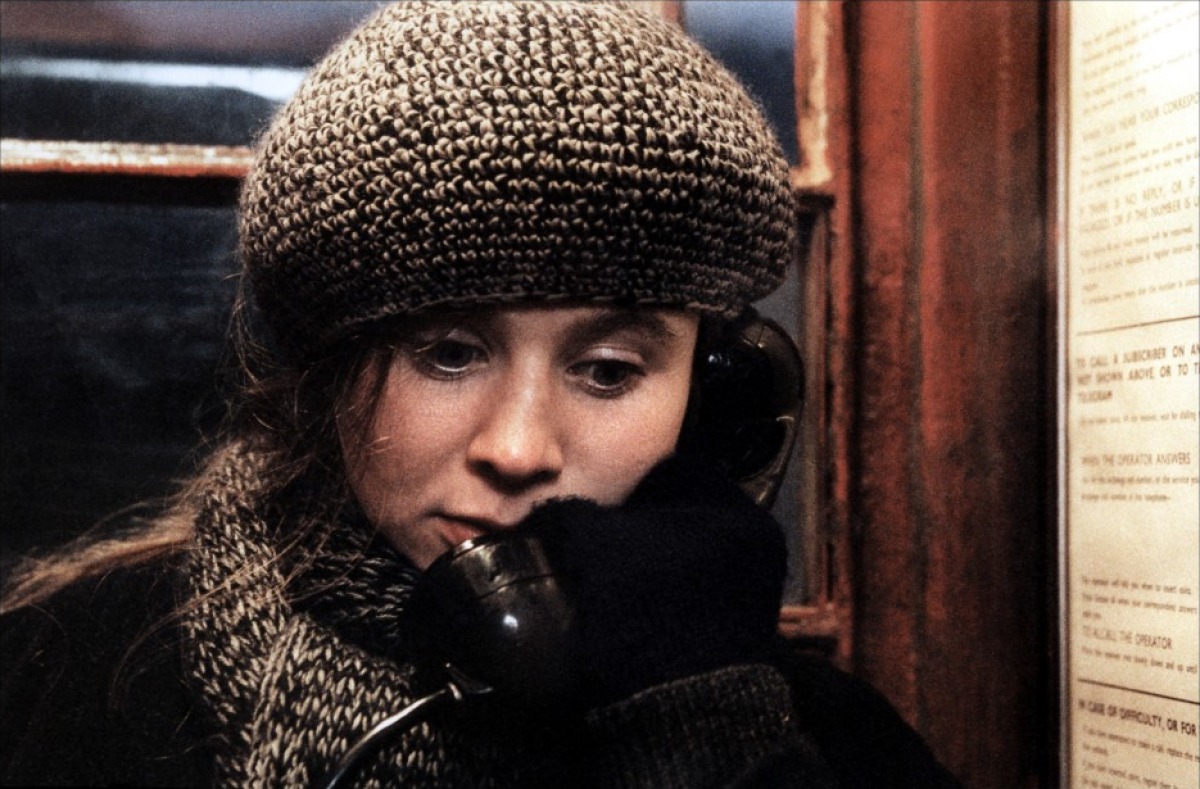Breaking the Waves might be the most divisive movie I've ever seen. Critics loved it, but its dour cast, constantly overcast sky, and childlike heroine can be too much for even adventurous cinephiles. And the director, considered mildly eccentric at the time, has progressed to nearly insane. His later films include the depressing Dancer in the Dark (didn't like), Dogville (didn't see), Melancholia (didn't see), and the stomach-turning AntiChrist (refuse to watch.) Not to mention controversial statements at Cannes about being a Nazi and exterminating journalists. In short, anyone who avoided Lars von Trier on principle or by reputation is justified.
Yet they would be missing out on one of the most emotional experiences ever caught on film. Bess's journey, although not a happy one, from naivete to complete self-sacrifice is enthralling. She is played by Emily Watson (no, not Hermione) is one the most acclaimed performances of the year. The story begins with her marrying the handsome oil rig operator Jan (Stellan Starsgard, later in Thor). His job requires him to be gone for long periods and she *should* know that, but she has a hard time with separations of any length. Jan's roughneck friends do not interact well with the village elders. Speaking of the village where Bess was raised - women are not allowed to speak in service and the recently deceased are consigned to hell... during the burial. Cheerful place. As she likely knows nothing about sex, she is anxious about her first encounter with Jan and cannot wait until night-time. In another movie this scene would seem vulgar. Here, he is helping her discover herself.
Although the elders aren't very nice and her mother buys into their dogma, Bess is still close with Dodo, the widow of her late brother. His cause of death is never mentioned, although it lead to Bess's first stint in a psychiatric hospital. Dodo does her best to keep Bess calm during Jan's upcoming departure, although it doesn't help much. Bess is absolutely inconsolable even though she knew it would happen.
She communes regularly with God, speaking in return in a deeper voice. It's a bit strange the first time, but then it seems like a coping mechanism. She wants her husband home regardless of the consequence. When he does come back, it is under the worst possible circumstances short of death. Bess is wracked with guilt - in her childlike mind, she caused his injuries with her selfish thoughts. No one can convince her otherwise.
So far the movie is downer and hard on ideological purity, but not controversial. That comes next, after a disabled and likely drugged Jan encourages his naive wife to sleep with other men. He doesn't drop this on her all at once and his motiations seem to change with every visit. Why he does this is never clear. He certainly isn't sex-obsessed and loves Bess dearly. She refuses at first, although he finally convinces her that it will be like them being together again. Bess still believes she is responsible and also that her love can cure him. The doctor and Dodo are horrified and try to get her to ignore his request. Even Jan backpedals a few times, once saying he's "evil in his head." None of this matters - she is willing to sacrifice herself for her husband.
There have been many theories floated in cinematic circles about Jan's unthinkable action. The most generous to him is that he wanted Bess to find another man and move on with her life. She doesn't care about other men. When she does finally accede, she dresses provocatively to save time (one man starts a conversation with "How much, darlin?") and selects men without regard to her safety. There is nothing even remotely pleasurable about her experiences and she only cares about telling Jan about them. She responds coldly to anyone trying to help her as her belief in love is stronger than any bond of friendship. One particularly harsh conversation with Dodo makes it clear that Jan means everything.
It doesn't take long for her small community to turn on her. Jan's condition does not improve and the doctor convinces him to commit Bess for her own protection. She escapes and gambles her life by returning to a location that nearly killed her the first time. She figures that the more she suffers, the more likely Jan will survive.
Breaking the Waves is not a pleasant film. I've only seen it about four times, but it remains one of my favorites out of the rawness of emotion. Her belief in forces beyond this world is so strong and she's not going to "wisen up." Watson's performance is one for the ages. If you insist on films that make you happy, that's fine. But sometimes a rollercoaster that returns where you started can be a more rewarding experience.
